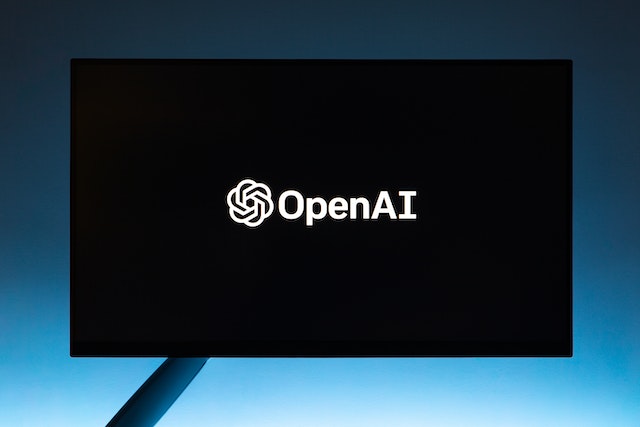Technological advancements never cease, and in the case of AI, they seem to be speeding up. Are you ready to take your marketing game to the next level? Well, buckle up because we’re about to dive deep into the fascinating world of AI and its incredible potential for streamlining your marketing campaigns so that they will blow your customers away. In this article, we’ll explore how to use AI to deliver tailored marketing experiences and campaigns that drive engagement, boost conversion rates, and leave a lasting impression on your audience. So, let’s roll up our sleeves and discover how you can harness the power of AI to connect with your customers on a whole new level.
The Importance of Personalized Marketing
Personalized marketing is highly effective in today’s highly competitive business landscape. In a world where consumers are bombarded with countless messages and advertisements, personalization is the key to cutting through the noise and capturing their attention. Businesses can forge a deeper and more meaningful connection with their audience by tailoring marketing experiences to individual customers’ preferences, needs, and behaviors. Personalization not only enhances customer engagement but also boosts customer satisfaction and loyalty.
When customers feel understood and valued, they are more likely to develop a sense of trust and affinity towards a brand, leading to increased conversion rates and long-term customer relationships. Furthermore, personalized marketing enables businesses to deliver the right message to the right person, at the right time, maximizing the effectiveness of their marketing efforts. It allows for more precise targeting, better customer segmentation, and the ability to anticipate and fulfill customers’ needs. Ultimately, personalized marketing empowers businesses to stand out in a crowded marketplace, create memorable experiences, and drive tangible results.

Understanding Your Audience
Before we embark on our AI-powered marketing journey, getting to know your audience like the back of your hand is crucial. Collecting and analyzing customer data is the secret sauce for creating personalized experiences that resonate with individuals. To create meaningful connections, you must gather insights into their demographics, behavior, and preferences.
Start by implementing effective data management systems that ensure you’re collecting the right information. Dive into the sea of data and identify patterns to create customer segments. These segments will help you understand the unique needs and desires of different groups within your audience, allowing you to tailor your marketing efforts to match their expectations.
Today, many marketers are shifting toward first-party and zero-party data strategies, where customers willingly share preferences, interests, and intent through forms, quizzes, subscriptions, and interactive content. This approach improves data accuracy while building trust. Customer Data Platforms (CDPs) now unify data from websites, email campaigns, social media, and mobile apps into a single customer profile, giving AI systems a clearer real-time view of each user’s journey. With cleaner and more connected data, personalization becomes more precise, timely, and relevant across every marketing channel.
Using AI to Analyze Market Trends
Using AI to analyze market trends has revolutionized how businesses make informed decisions and develop effective marketing strategies. AI algorithms can process and analyze vast amounts of data in real time, enabling businesses to uncover valuable insights that were previously hidden or difficult to identify. By leveraging AI, businesses can better understand market dynamics, consumer preferences, and emerging trends.
AI-powered analytics tools can use complex data sets, such as social media conversations, online reviews, and purchasing patterns, to extract meaningful patterns and correlations. This analysis gives businesses valuable insights into consumer behavior, allowing them to identify customer preferences, anticipate market shifts, and tailor their offerings accordingly.
Moreover, AI algorithms excel at detecting hidden patterns and trends that might not be apparent to human analysts. By analyzing historical data and monitoring ongoing market activities, AI can identify emerging trends, predict future customer behavior, and guide businesses in making proactive marketing decisions. That empowers businesses to stay ahead of the competition, adapt quickly to changing market conditions, and seize new opportunities.
Segmenting Your Target Audience and Obtaining Customer Feedback with the Help of AI
AI-driven market trend analysis enables businesses to segment their target audience more effectively. By identifying distinct customer segments based on behavior, demographics, and preferences, businesses can create highly targeted marketing campaigns and deliver personalized experiences to different customer groups. This level of customization enhances customer engagement, improves conversion rates, and cultivates customer loyalty.
Furthermore, AI can automate the process of monitoring customer sentiment and feedback. By analyzing online conversations and sentiment analysis, businesses can gauge customer satisfaction, identify areas of improvement, and respond promptly to customer concerns. This real-time analysis helps businesses maintain a customer-centric approach and refine their marketing strategies based on customer feedback.
In summary, leveraging AI to analyze customer behavior gives businesses a competitive edge. It empowers them to make data-driven decisions, identify market opportunities, and deliver personalized experiences that resonate with customers. By harnessing the power of AI analytics, businesses can optimize their marketing efforts, drive growth, and build stronger connections with their target audience.
How to Use AI to Deliver Tailored Marketing Experiences
Now that we’ve laid the groundwork, it’s time to bring in the heavy artillery: AI-powered tools. These game-changers can revolutionize the way you engage with your customers. Let’s explore a few of the most impactful ones:
Recommendation Engines
These nifty algorithms analyze customer data and provide personalized recommendations based on preferences and behavior. You’ve probably seen them on platforms like Amazon and Netflix, which suggest products or movies tailored to you. Use AI to deliver tailored marketing experiences by implementing recommendation engines on your website or email campaigns. Watch your customers receive personalized recommendations that make them feel you truly understand their needs.
Dynamic Content Generation
Gone are the days of one-size-fits-all content. With AI, you can generate dynamic content that adapts to each customer’s preferences, creating a unique and tailored experience. Customize website content, emails, and advertisements to speak directly to individuals, making them feel special and valued. Remember, people love seeing content that resonates with them, and AI is your secret weapon in achieving that.
Chatbots and Virtual Assistants
Picture this: a customer lands on your website, and a friendly chatbot pops up, ready to assist them with any questions or concerns. AI-powered chatbots and virtual assistants are revolutionizing customer interactions, providing personalized experiences 24/7. These smart helpers can engage in natural language conversations, understand customer intent, and offer tailored recommendations. Implementing chatbots can boost customer satisfaction, streamline support, and even guide users through their buyer’s journey.
Modern generative AI tools now go beyond simple personalization by creating multiple versions of subject lines, product descriptions, landing pages, and ad copy in real time. These systems adjust messaging based on browsing behavior, past purchases, and engagement levels. For global brands, AI can instantly localize content into different languages while preserving tone and intent. That allows marketers to deliver highly relevant experiences at scale without increasing content production costs or timelines.

Automating Marketing Campaigns with AI
Now that you have a taste of what AI can do for personalization, let’s explore how it can supercharge your marketing campaigns through automation.
Marketing Automation Platforms
These platforms streamline your marketing efforts by automating repetitive tasks, allowing you to focus on strategic initiatives. Integrating AI into your marketing automation workflows will enable you to analyze customer behavior, segment your audience, and deliver personalized content at scale. This sort of automation can allow you to launch individualized content marketing campaigns, which would otherwise be practically impossible due to the high level of needed customization. Imagine sending targeted emails to specific customer segments based on their preferences or triggering personalized offers when they reach a certain engagement level. AI takes automation to a whole new level, making your campaigns more efficient and effective.
Predictive Analytics
Predicting the future may seem like something out of a sci-fi movie, but AI-powered predictive analytics can do just that. By analyzing past customer behavior, predictive analytics models can forecast future actions and preferences. Use these insights to anticipate your customer’s needs and deliver tailored marketing experiences before they even realize they want them. Predictive analytics can help you identify which customers are most likely to churn, which products they are likely to purchase, and even when they’re most receptive to marketing messages. With this knowledge, you can stay one step ahead of your customers and create highly targeted campaigns that hit the bullseye every time.
Many brands now use predictive AI to calculate customer lifetime value and trigger automated campaigns based on likely next actions. For example, high-value customers may receive early access offers, while users showing churn signals receive retention incentives. AI can also recommend the next best content, product, or promotion in real time, allowing campaigns to adapt continuously as customer behavior changes.
Leveraging AI for A/B Testing: Streamlining and Speeding up the Process
Using AI to perform A/B testing in personalized marketing takes experimentation and optimization to a new level. Traditional A/B testing involves comparing two versions of a marketing element to determine which performs better. However, in personalized marketing, the challenge lies in testing multiple variations tailored to different customer segments. That is where AI comes in. AI algorithms can analyze vast amounts of data, including customer demographics, preferences, and behavior, to create highly targeted variations for different segments. Businesses can run A/B tests at scale and accelerate the optimization process by using AI to generate and distribute these personalized variations automatically.
AI can analyze the performance of each variation in real time, providing valuable insights into which personalized content, offers, or messages resonate best with different customer segments. That allows businesses to refine their personalized marketing strategies, improve customer engagement, and drive better results. AI-powered A/B testing in personalized marketing enables businesses to fine-tune their campaigns for maximum impact, ensuring each customer segment receives the most effective and relevant messaging.
Using AI to Promote Cost Savings in Marketing
Using AI to promote cost savings is a game-changer for businesses looking to optimize their marketing budgets. AI-powered technologies can automate tasks that would otherwise require significant time and resources. By automating processes like data analysis, campaign management, and customer segmentation, AI reduces the need for manual intervention, minimizing human error and saving valuable staff hours.
AI algorithms can identify patterns and trends in customer behavior, allowing businesses to allocate their marketing budget more efficiently and target high-value segments. Moreover, AI can optimize ad spend by analyzing real-time performance data and adjusting bids and targeting parameters to maximize ROI. With AI-powered predictive analytics, businesses can make data-driven decisions, minimizing the risk of wasted investments and improving the overall effectiveness of their marketing campaigns. By leveraging AI, businesses can streamline operations, reduce costs, and achieve higher returns on their marketing investments.

Overcoming Challenges and Ethical Considerations
While the potential of AI in delivering tailored marketing experiences is immense, it’s crucial to navigate some challenges and ethical considerations along the way.
Privacy and Data Security
As you delve into the world of personalized marketing, it’s essential to prioritize privacy and data security. Ensure that you comply with data protection regulations and take measures to safeguard customer data. Transparency is key – be clear about what data you collect and how you use it, and give customers control over their information. Building trust through responsible data practices is vital for long-term success.
Many companies now adopt consent management platforms that allow users to control how their data is collected and used across channels. In addition, explainable AI models help marketers understand why certain recommendations or predictions occur, improving transparency and accountability. These practices not only support compliance with privacy regulations but also strengthen customer confidence in personalized marketing efforts.
Balancing Personalization and Intrusion
Personalization is powerful, but it can quickly cross into intrusive territory if not handled carefully. Avoid bombarding customers with overly personalized messages that make them feel like they’re being watched. Respect their boundaries and preferences. Remember, personalization should enhance the customer experience, not overwhelm it. Strive for a delicate balance between providing tailored content and giving customers space to breathe.
The Limitations of Using AI in Marketing
While AI has shown tremendous potential in revolutionizing marketing, it is important to acknowledge the limitations associated with its usage. Firstly, AI algorithms heavily rely on data inputs, and if the data used for training is biased or incomplete, it can lead to biased or inaccurate predictions and recommendations. Maintaining data quality and addressing bias issues requires constant monitoring and intervention. Implementing AI technologies can also be costly, especially for small businesses with limited resources. Developing and integrating AI systems often involves significant investments in infrastructure, talent, and ongoing maintenance.
Furthermore, AI may lack the human touch and empathy that personal interactions provide. While AI can automate and streamline processes, it may struggle with complex customer queries or emotional nuances that require a human touch. Lastly, privacy concerns arise when AI systems collect and process personal data. Striking the right balance between personalization and customer privacy is crucial to ensure AI’s ethical and responsible use in marketing. Understanding and addressing these limitations is essential for businesses to leverage AI effectively while mitigating potential risks.
Examples of Companies Using AI in Their Marketing
- Amazon: As one of the pioneers in AI-driven marketing, Amazon utilizes AI-powered recommendation engines to personalize the shopping experience for its customers. Amazon suggests relevant products tailored to each individual’s interests by analyzing customer browsing and purchase history, and factors like demographics and preferences.
- Netflix: The streaming giant Netflix heavily relies on AI algorithms to deliver personalized content recommendations to its users. By analyzing user behavior, viewing history, and preferences, Netflix offers a curated selection of movies and TV shows that match each viewer’s taste. This level of personalization has played a crucial role in keeping users engaged and satisfied, leading to higher retention rates and continued subscription growth.
- Spotify: The popular music streaming platform Spotify leverages AI to deliver personalized music recommendations and curated playlists. By analyzing users’ listening habits, Spotify’s algorithms generate playlists tailored to each user’s music preferences, mood, and even the time of day. This personalization has helped Spotify build a strong user base and enhance user satisfaction by providing a customized music experience.
- Starbucks: Starbucks incorporates AI technology in its mobile app to offer personalized recommendations and rewards to its customers. The app analyzes individual purchasing behavior, preferences, and location data to suggest personalized beverage options and exclusive promotions. This approach enhances the customer experience and encourages customer loyalty and repeat visits.
- Stitch Fix: Stitch Fix, an online personal styling service, employs AI algorithms to deliver personalized fashion recommendations to its customers. Using data analysis and expert styling, Stitch Fix selects clothing items and accessories based on customers’ preferences, body types, and styles. This personalized approach has made the online shopping experience more convenient and enjoyable for users.
The Future of AI-Powered Marketing
The future of AI-powered marketing holds exciting possibilities as advancements in AI technology continue to accelerate at an unprecedented pace. As we push the boundaries of what AI can do, we can expect even more sophisticated algorithms that can better understand and predict customer behavior. These algorithms will be able to analyze vast amounts of data with lightning speed, allowing businesses to gain deeper insights into their target audience’s preferences, needs, and purchasing patterns. These insights can attract your target audience and present them with effective marketing that appeals to their needs.
Another growing trend is the rise of real-time personalization across entire customer journeys. Instead of reacting after interactions occur, AI systems now adjust website layouts, email timing, product recommendations, and ad creative instantly based on live user behavior. This continuous optimization allows brands to respond to intent signals as they happen, increasing engagement and conversion rates. As real-time AI becomes more accessible, marketers will shift from static campaigns to always-adapting experiences that evolve with each customer interaction.
One of the prominent trends we can anticipate is the widespread adoption of AI-powered voice assistants. With the rise of smart speakers and voice-activated devices, customers will increasingly rely on voice commands to interact with brands and make purchases. AI-driven voice assistants will become more conversational and intuitive, providing personalized recommendations and guiding customers through their buyer’s journey. This seamless and natural interaction will further enhance the customer experience, making it more convenient and engaging.
Another exciting development is integrating augmented reality (AR) and virtual reality (VR) technologies into AI-powered marketing strategies. AR and VR will offer immersive and interactive experiences, allowing customers to visualize products in their environments before purchasing. Imagine trying on virtual clothing, rearranging virtual furniture in your living room, or experiencing a virtual car test drive – all made possible through AI and AR/VR technologies. These personalized and immersive experiences will captivate customers and help businesses showcase their products more engagingly and memorably.
Conclusion
We understand that we’ve just given you a lot to think about. But although dipping your toes into AI marketing might seem daunting at first, it is well worth it. You’ve now unlocked the power of AI to deliver tailored marketing experiences that will leave a lasting impression on your audience. By understanding your customers, leveraging AI tools for personalization, automating your campaigns, and navigating ethical considerations, you’re well on your way to building stronger connections and driving better results.
As the world of AI continues to evolve, remember to stay curious, keep experimenting, and adapt to the changing landscape. The possibilities are endless, and with the right blend of creativity and technology, you can create marketing experiences that truly resonate with your audience. Start working on your marketing campaign and use AI to deliver tailored marketing experiences that captivate and delight your customers. The future is yours to shape!
About the Author

Nigel Wolmer is a Marketing Executive working for Digital Dot New York, specializing in helping small businesses reach their full potential. He loves researching the latest tech advancements and applying them to his latest projects. Nigel spends his time binging crime novels and series when he isn’t working.


